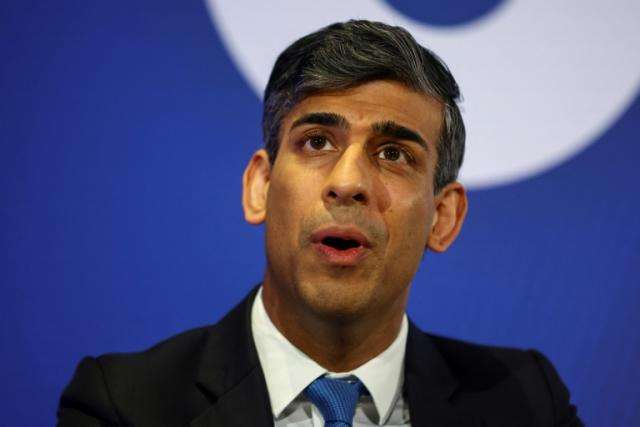Prime Minister Rishi Sunak’s recent election pledge to introduce mandatory national service for all 18-year-olds has come under fire, with a prominent thinktank warning it could financially disadvantage some of the UK’s most deprived areas.
The Institute for Fiscal Studies (IFS) raised concerns about the proposal, suggesting it could leave regions like Wales, Cornwall, and parts of northern England millions of pounds poorer each year.
Sunak’s announcement detailed that, if re-elected, every 18-year-old in the UK would either engage in a competitive, full-time military commission or participate in “civil resilience” by volunteering one weekend a month.
This initiative, according to the Conservatives, aims to instill valuable real-world skills and foster community involvement among young people.
However, the IFS scrutinized the financial mechanics behind the proposal and found significant flaws.
The funding for this national service scheme is intended to come from scrapping the UK Shared Prosperity Fund starting in 2028-29.
The Shared Prosperity Fund is a £1.5 billion annual program established post-Brexit to replace EU regional development funding. It has been crucial for economically disadvantaged areas such as the South Wales valleys.
Redirecting these funds to support the national service plan would, according to the IFS, undermine efforts to level up these struggling regions.
David Phillips, an associate director at the IFS, highlighted the shift in resource allocation that Sunak’s plan would entail.
“Rather than being targeted at poorer areas and aimed at leveling up, the funding would be spread across the country based on where 18-year-olds are undertaking their military or community service.”
David Phillips
This reallocation could mean hundreds of millions less for community and economic development in places like Wales, Cornwall, and the North and Midlands of England.
The IFS’s analysis estimates substantial financial losses if the proposal goes ahead. Wales could see a reduction of £275 million annually, Cornwall £72 million, and the North East and Tees Valley mayoral areas could collectively lose £46 million.

The Labour Party has also criticized the national service plan, labeling it as an unfunded £2.5 billion commitment necessitated by what they claim is the Conservative Party’s undermining of the armed forces.
Labour Criticizes Tories’ National Service Plan
According to Labour, the scheme reflects a misguided approach to national service and fails to address the broader economic needs of disadvantaged communities.
The Shared Prosperity Fund has been a pivotal component in supporting regional development since Brexit, particularly in areas that previously benefited from EU funds.
Labour has yet to detail its plans for the fund, but a 2022 report commissioned by former Prime Minister Gordon Brown recommended merging it with other financial streams and devolving control to local mayors.
This approach could potentially offer a more integrated and locally managed strategy for addressing regional economic disparities.
Sunak’s proposal has not only drawn criticism from economic experts and political opponents but also from military leaders.
Admiral Alan West, a former chief of the naval staff, described the scheme as “bonkers” and warned it would strain the defense budget.
Former Conservative Defense Secretary Michael Portillo also dismissed the idea, indicating a broad spectrum of opposition to the plan.
As the debate continues, the implications of Sunak’s national service pledge remain a contentious issue.
With significant potential impacts on funding for some of the UK’s poorest regions, the proposal is likely to face further scrutiny and opposition from both political and community leaders concerned about equitable economic development and regional stability.
READ ALSO: GIDA Clarifies US$11.9 Million Payment To Pwalugu Dam Contractor























